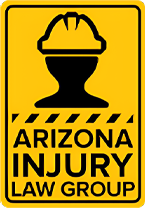How is an Independent Contractor Defined in Arizona?

Independent contractors are those who are hired by an employer (also called client) to perform a certain job for which they are considered a professional with the right skills to do that job. The independent contractor is not supervised or controlled by the employer in any way except to produce that for which the contractor was hired to perform.
Arizona Revised Statutes (A.R.S) Title 23. Labor § 23-902
The A.R.S Title 23. Labor § 23-902 details exactly how independent contractors are to be viewed when working for the employer who has hired that contractor. The independent contractor does not do the same work as other employees at the company and the employer does not control any aspect of the independent contractor’s time and place of where the contractor should do that job.
As an example, the employer lays out what the job will be, such as writing white papers, case studies, or other marketing pieces, which is not done by employees of that employer’s business. The employer can state when each of those marketing pieces must be completed and handed over so that a marketing campaign can be conducted. The independent contractor does not do anything else for the employer except to complete and turn over those marketing pieces for which he or she was hired.
Fine-tuning the Definition for Legal Purposes
Section 23-902 (D)(1-8) shows how an employer can protect the company by creating an agreement with the independent contractor that states the employer does not have authority to supervise or control the work of the independent contractor or any employees of that contractor. It can also state that the independent contractor is not entitled to worker’s compensation benefits from work done for the employer. The agreement must also show the following considerations, as presented by this section of the law.
- The contractor is not required to work exclusively for the employer,
- There are no licenses or business registrations needed to conduct the work,
- The contractor is not paid an hourly wage, only that which is agreed upon as a full fee for each project completed,
- Can not terminate the contractor from the job being performed, unless the contractor breaches or violates state laws,
- Does not provide any tools for the contractor to complete the job,
- Does not dictate the time or hours that the contractor must work,
- Pays the contractor using the name that appears on the agreement,
- And, does not combine business operations with the contractor, such as requiring the contractor to conduct the job at the employer’s business.
This signed agreement is also sent to the insurance company so that no premiums are demanded of the employer for the hiring of the independent contractor. It also prevents the state from holding the insurance company liable (§ 23-961(L-M)) if a situation arises later.
If an independent contractor, hired to do a job for an employer, has sub-contractors to handle parts of that job, then the independent contractor must carry worker’s compensation insurance for the sub-contractors, such as a construction company.
Contact us if you are not sure whether your situation implies that you are really an employee or an independent contractor. 602-346-9009
Get Help Today
Call Immediately For A Free, No Obligation Consultation And Let Us Help You Put Your Life Back On Track. Let Us Help You
Regain Normalcy And Stability Again. We Want To Help You Get The Benefits You Need And Deserve!


